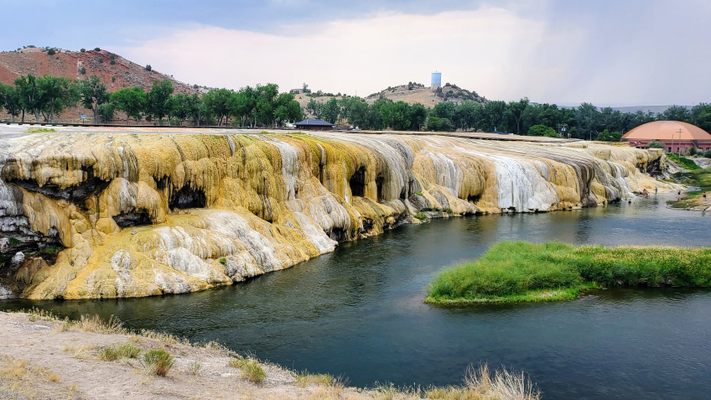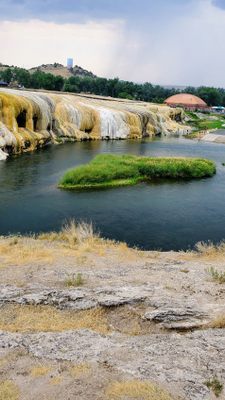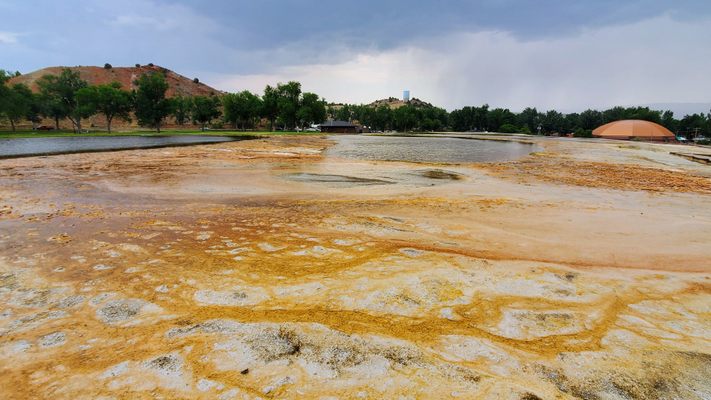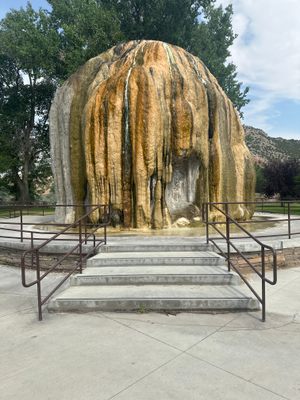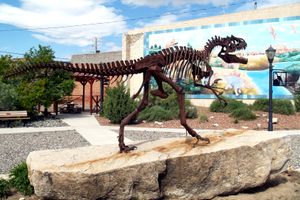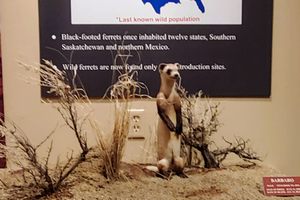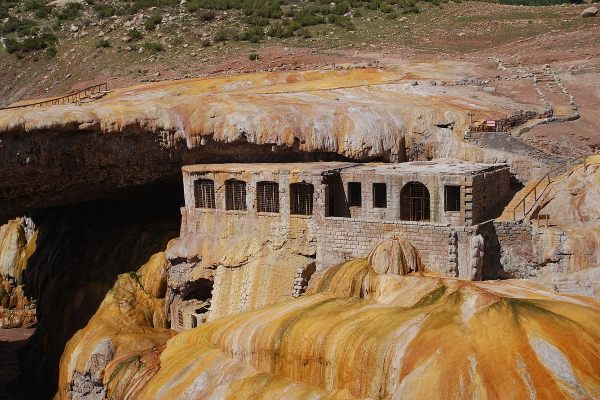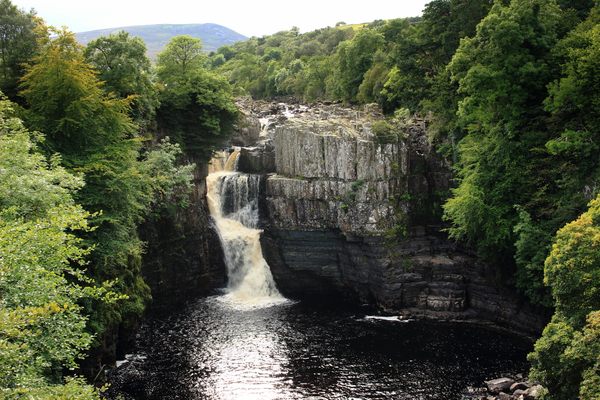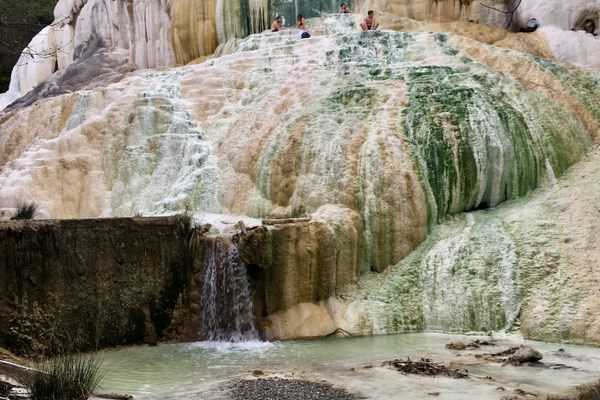About
Yellowstone National Park may be America’s greatest natural wonder, attracting millions of visitors each year to its unearthly terrain, but it isn’t the only geothermal park in the state of Wyoming. Visitors who want to avoid the crowds and experience a more homespun version of American geology can head to the heart of the state and visit the world’s largest hot spring in Hot Springs State Park, located in the aptly named historic resort town of Thermopolis, Wyoming.
Pre-contact, the Big Horn Hot Springs were a sacred place to members of the Eastern Shoshone Tribe, who were living in the area they called "Warm Valley." Bah Guewana, “the smoking water,” was discovered by white explorers in the early 1800s and was immediately noted to be a valuable destination. Later, as the Eastern Shoshone and Northern Arapaho tribes were merged into the Wind River Reservation in the 1860s-70s, the hot springs remained on the reservation, even as white developers were forming plans to build a resort town. In 1896, the Eastern Shoshone and Northern Arapaho tribes, struggling and in need of cash and rations, agreed to sell the hot springs to the federal government in a severely undermarket deal. The longtime principal Eastern Shoshone Chief Washakie agreed to the deal under one condition: the waters of the hot springs would always be free. The next year, the Federal Government released the land to the state of Wyoming, and Hot Springs State Park was born.
There remains a free public bath house on the park grounds, with temperatures cooled slightly to a temperate 104 degrees Fahrenheit. The Shoshone and Arapahoe Nations celebrate the treaty with a festival known as the Gift of the Waters, held annually during the first weekend in August. According to the historical sign placed at the site, "upon signing the treaty, Chief Washakie proclaimed, 'I have given you the springs, my heart feels good.'"
There are two other commercial spas, one an unfortunately themed but spectacular-domed building known as Hellie’s Tepee Spa, and the other a hot water-fed theme park known as Star Plunge. Nearby, the Tepee Fountain is a half-manmade, half-natural feature created by piping mineral water through a fountain. The park is also home to the central Wyoming state park's bison herd—early risers can enjoy the daily bison feeding held between 8-9 a.m.
However, the most spectacular feature of the park remains the Big Spring itself. Hot water ripples through the spring, streaking the colorful rainbow travertine terrace, a particularly striking site in winter. Visitors can walk along the springs using boardwalks, or hike and boat through back trails.
Perhaps the most famous amenity of the park is the Swinging Bridge, a suspension bridge that crosses the Bighorn River, offering spectacular year-round views of Mineral Terrace. This is actually the second swinging bridge built at the location. The first was built in 1916 to connect Big Spring and Fremont Spring, and was undoubtedly terrifying long before its 1984 condemnation. The new bridge was built in 1992, and maintains its predecessor’s steady sway. Those brave enough to traverse the bridge are rewarded with a remarkable view of Bah Guewana.
Related Tags
Know Before You Go
Hot Springs State Park and the Hot Springs Public Bath House are free and open to the public year-round. Check the park's website for hours a, map, and activity information.
Published
March 14, 2024
